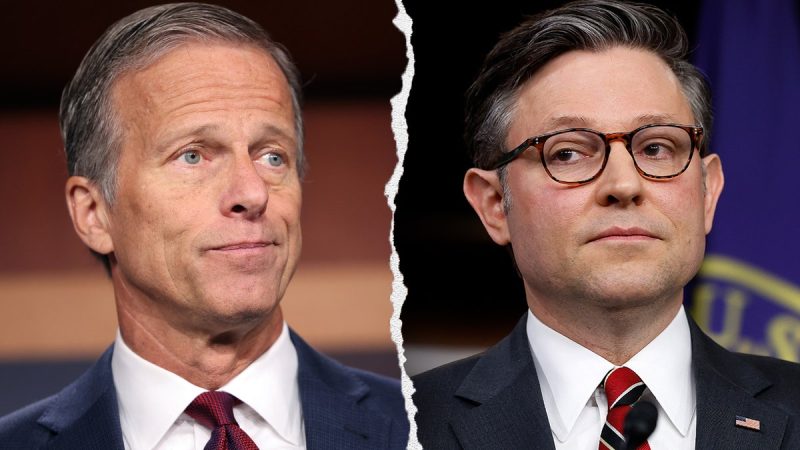
Trump budget bill hits turbulence ahead of House vote as Senate backup looms
A massive piece of legislation that House Republicans hope will advance a broad swath of President Donald Trump’s agenda is facing its final hurdle on Monday before a chamber-wide vote.
The House Rules Committee, the final gatekeepers for most bills before a House floor vote, is meeting to debate a measure that GOP leaders want to have on Trump’s desk by sometime in May.
The bill aims to increase spending on border security, the judiciary and defense by roughly $300 billion, while seeking at least $1.5 trillion to $2 trillion in spending cuts elsewhere.
As written, the bill also provides $4.5 trillion to extend Trump’s 2017 Tax Cuts and Jobs Act (TCJA) provisions, which expire at the end of this year.
It comes after the Senate held an all-night session to advance its own version of the Trump plan last week. In the Senate Republicans’ budget plan, the first reconciliation bill includes Trump’s priorities for border security, energy and national defense, while the second bill, to be drawn up later in the year, would focus on extending Trump’s tax policies from TCJA.
Since the commander in chief has already telegraphed his preference for House Republicans’ proposal, the Senate bill has been relegated to a de facto backup plan if the House is not able to pass its own. This much was relayed to senators by Vice President JD Vance last week as he gave them the White House’s blessing to push their bill forward, a source told Fox News Digital.
Current margins dictate House Republicans can only lose one vote to still pass a bill without Democratic support.
Rep. Victoria Spartz, R-Ind., wrote on X Sunday night that she was against the bill as written.
‘Why I am a NO on the current version of the house budget instructions – I have a TRILLION DOLLAR QUESTION – where is the money – $1T? Interesting FACT: roughly 85% of spending is not ever even looked at by Congress – convenient if you would like to hide waste, fraud and abuse,’ Spartz announced.
Other Republicans have expressed concerns over the $880 billion in spending cuts under the Energy & Commerce Committee, which many have taken to mean at least some cuts to federal programs like Medicaid.
The House version of the bill differs from the Senate in that the latter version does not include funding for Trump’s tax cuts. Senate GOP leaders argue that splitting Trump’s priorities into two bills will allow the party to secure early victories on the border and defense, places where there is more agreement within the conference.
However, House Republican leaders contend that Republicans have not passed two reconciliation bills since the 1990s and under far more favorable margins.
Both chambers are contending with razor-thin margins and an ideologically diverse Republican conference as they look to make major conservative policy changes via the budget reconciliation process this year.
By leveling thresholds for passage in the House and Senate at a simple majority, reconciliation allows the party in power to pass fiscal legislation without any support from the opposing side. The Senate has a two-thirds majority threshold to advance most measures.
It is not clear, however, whether Trump’s support for the House plan will be enough to get it over the line.
